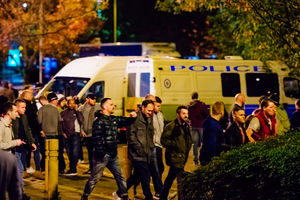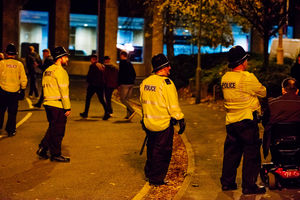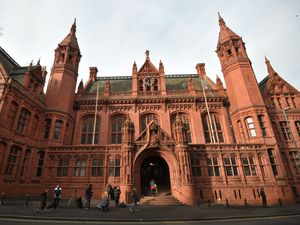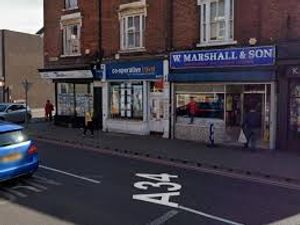Wolves, West Brom, Aston Villa and Walsall pay £5m bill to police matches
Wolves, Albion, Villa, and Walsall have paid police millions of pounds to man their matches, new figures reveal.

A total of £5,196,527 has been paid to West Midlands Police by the region's six professional clubs since the 2013/14 season.
But the force says the amount only covers part of the total match day costs – and campaigners today called for the clubs to pick up a larger slice of the bill.
Villa have the largest policing bill, totalling £1.5m over the past five seasons.
Wolves' costs came to £1,015,995, but still less than the £1.1m paid by Birmingham City.
Despite being the only team currently in the Premier League, Albion paid £968,235.
Walsall's bill was £265,701, while Coventry picked up costs of £246,751 over the past five seasons.
Police can only charge football clubs for costs inside the stadiums, meaning patrols around nearby streets, railway stations and town centres are picked up by the force.
Liberal Democrat campaigner Rob Quarmby said: "These clubs are some of the richest in Europe, sharing a part of a multi million or even multi billion TV rights deal.
"I believe if you can spend £20 million on a player who might sit on your bench, you can pay to keep fans safe, many of them paying hundreds of pounds to follow their team.
"The clubs need to come clean and tell us how much they actually cough up in supporting the police keep us safe.
"The police have more important things to spend their budget on. Taxpayers should not have to spend another penny on subsidising some of the richest organisations in the world.”

The figures were released under the Freedom of Information Act.
West Midlands Police says it does not keep records of the total costs of policing matches, including patrols outside the stadium.
The number of officers deployed depends on whether the match is regarded as a high risk.
A team of three inspectors, nine sergeants and 63 constables are deployed to the highest category matches, while just one sergeant and seven constables will staff the lowest risk games.
Force spokesman Craig Hughes said: "We work closely with football clubs across the West Midlands to ensure supporters can attend games in a safe environment.
"The money received from football clubs is reinvested back into policing."
Force guidance states: "Football clubs are currently only legally obliged to pay for the policing on their footprint, usually inside the stadium and surrounding car parks. The provision of 'consequential policing' outside a football match, for example at a railway station or in the city centre, is currently the responsibility of the police. This includes any costs of such policing."
The Met Police estimates it costs £7m a year to police football matches in the capital.
The Home Office said after a review in 2013 and 2015, there is no plan to make changes to the charging policy for football clubs.
A spokesman said: “It was decided that we would not legislate to permit changes for wider policing.
"It is important that the charging policy is fair to the police, taxpayers, the organisations putting on sporting events and those spectators who pay to attend.”
Wolves, Albion and Walsall were approached for comment.




